Introduction To Cucumber
The cucumber is a widely consumed vegetable with a distinct taste and crunchy texture. It’s typically eaten raw and can be found in a variety of salads, sandwiches, and appetizers. Cucumber is a member of the gourd family and is technically a fruit, although it’s commonly referred to as a vegetable.
Cucumbers are rich in antioxidants and essential vitamins and minerals, such as vitamin C, vitamin K, and potassium. They’re also low in calories and high in water content, making them a popular choice for those looking to maintain a healthy diet or lose weight. Additionally, cucumbers contain a compound called cucurbitacin, which has shown promise in fighting cancer.
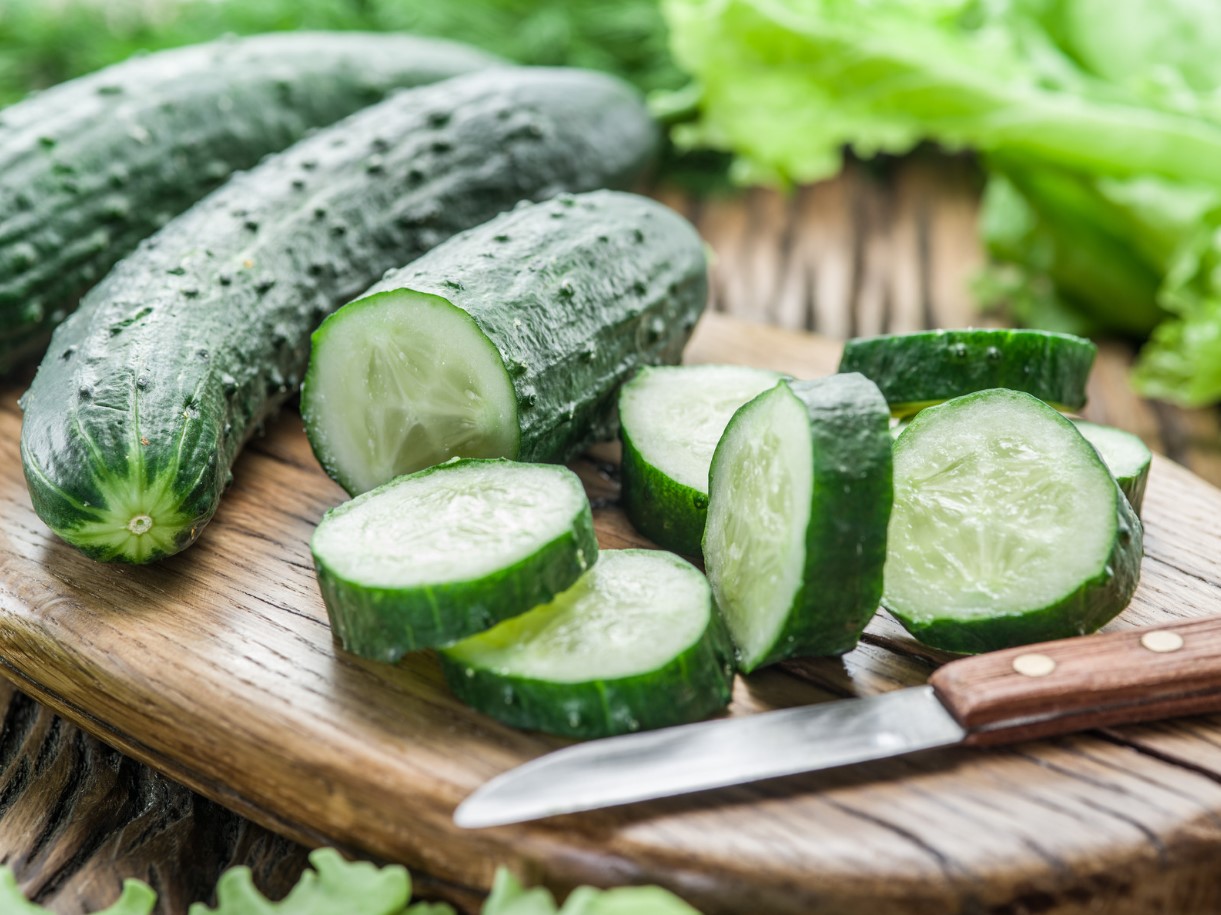
- One of the most popular varieties of cucumber is the English cucumber, which is long and thin with a mild taste.
- Another variety is the pickling cucumber, which is shorter and has a bumpy texture.
- The lemon cucumber, which is smaller and rounder, gets its name from its yellow color and citrusy flavor.
Cucumbers have a long and interesting history, with evidence of their cultivation dating back to ancient times in India and Egypt. In fact, the rulers of ancient Egypt were known to be particularly fond of cucumbers, and it’s believed that they were cultivated in the Hanging Gardens of Babylon.
| Nutrient | Amount per 100g |
|---|---|
| Calories | 15 |
| Protein | 0.6g |
| Fat | 0.1g |
| Carbohydrates | 3.6g |
| Fiber | 0.5g |
Overall, cucumbers are a tasty and nutritious addition to any diet. They offer a range of health benefits and can be used in a variety of culinary dishes. Whether you’re looking to lose weight or simply wanting to incorporate more vegetables into your diet, cucumbers are a great choice.
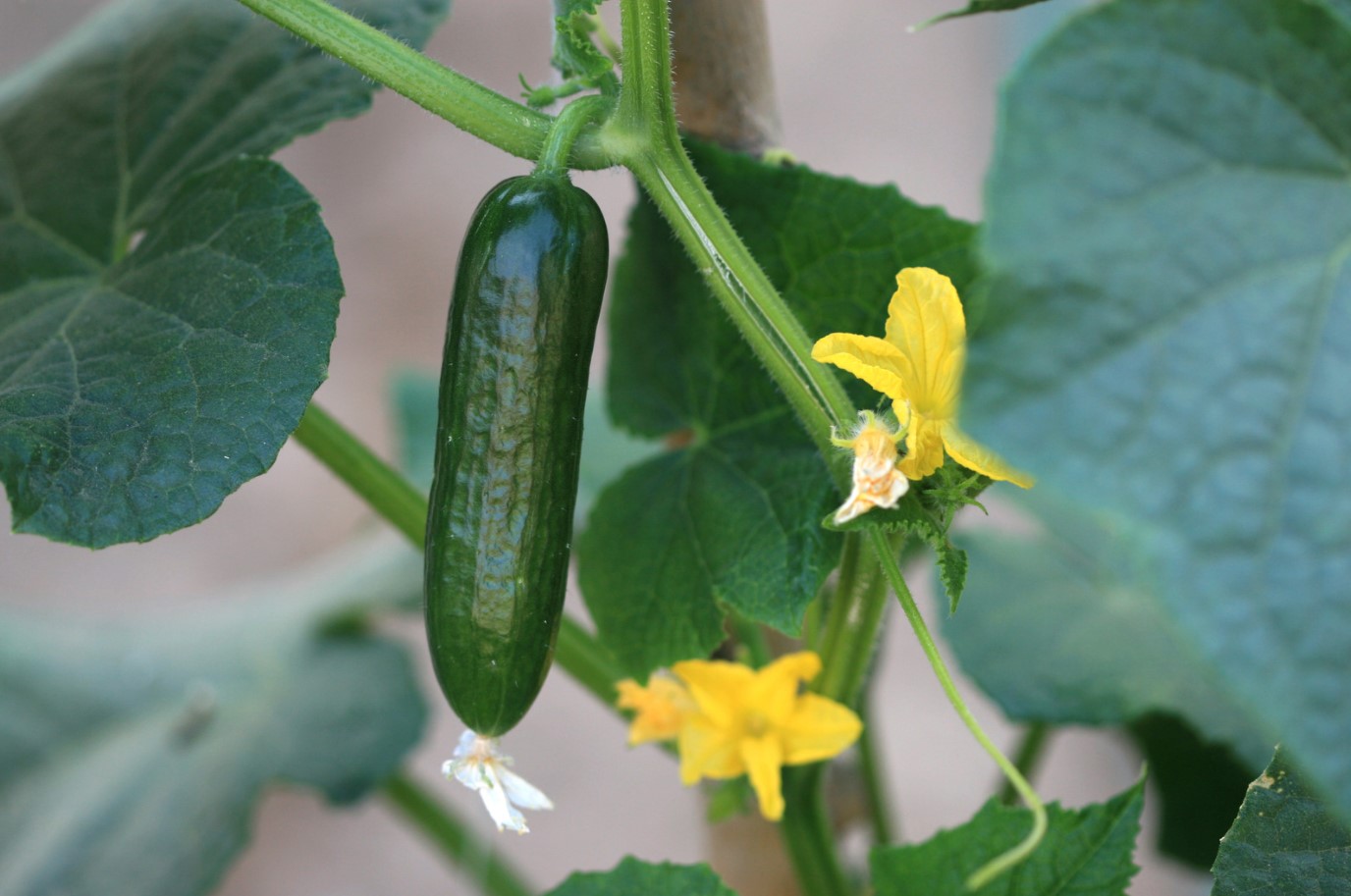
Nutritional Value Of Cucumber
Cucumber, a refreshing vegetable, is rich in nutrients that benefit the human body. It is a member of the Cucurbitaceae family and is characterized by its mild flavor and crunchy texture. This fruit, which is often used as a vegetable, is packed with vitamins, minerals, and other essential nutrients that contribute to good health. So, let’s take a closer look at the nutritional value of cucumbers.
- Vitamins: Cucumber is a good source of vitamins, especially vitamin C. A cup of sliced cucumber contains about 10% of the daily recommended intake of vitamin C. It also contains vitamin K, which is important for blood clotting and bone health.
- Minerals: Cucumber is rich in minerals such as potassium, magnesium, and manganese. Potassium helps maintain proper fluid balance and supports heart health. Magnesium contributes to bone health and regulates blood sugar levels. Manganese helps in the formation of strong connective tissues and bones.
- Fiber: Cucumber contains fiber, which helps in digestion and supports bowel movements. Fiber also helps maintain a healthy weight by keeping you full for longer periods.
- Antioxidants: Cucumber contains antioxidants such as beta-carotene, lutein, and zeaxanthin, which help protect the body against free radicals that cause damage to cells and contribute to chronic diseases.
The nutritional value of cucumbers makes it a good choice for a healthy diet. It is low in calories and rich in water, making it an ideal snack for weight loss. Additionally, the high water content of cucumbers helps keep the body hydrated and supports the removal of toxins from the body. Hence, incorporating cucumbers into your daily diet can improve your overall health and help you maintain a healthy weight.
| Nutrient | Amount per cup(104g) |
|---|---|
| Calories | 19 |
| Protein | 1g |
| Carbohydrates | 4g |
| Fiber | 1g |
| Fat | 0g |
| Potassium | 147mg |
| Vitamin C | 4.5mg |
| Vitamin K | 10.2mcg |
In conclusion, cucumbers are a healthy and nutritious food that can be easily incorporated into your daily diet. They are also versatile and can be used in a variety of dishes, from salads to sandwiches. So, next time you reach for a snack, consider grabbing a cucumber instead!
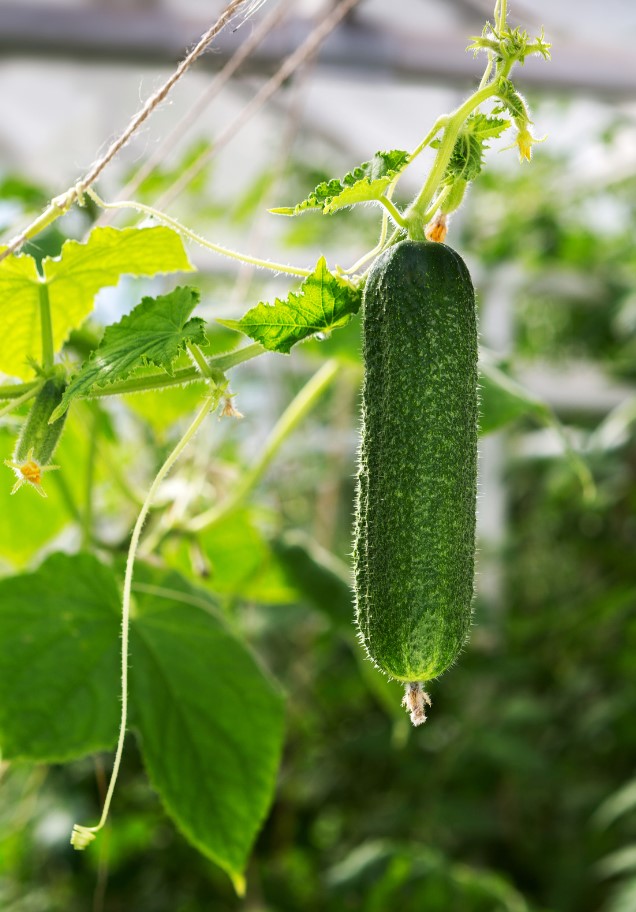
Health Benefits Of Eating Cucumber
Cucumbers are one of the most popular vegetables all around the world. They are known for their crisp texture, refreshing taste, and green color. While cucumbers are usually enjoyed for their taste, they are also known to have several health benefits. In this article, we will be discussing some of the health benefits of eating cucumber that you might not have known before.
1. Rich in Nutrients: Cucumbers are low in calories and high in nutrients. One of the nutrients that cucumbers are rich in is Vitamin K. This vitamin is important for blood clotting and bone health. Cucumbers are also a good source of Vitamin C, which is essential for immune system function and skin health.
- Cucumbers also contain antioxidants such as beta-carotene and flavonoids.
- These can help protect your cells from damage caused by free radicals.
- Cucumbers also contain small amounts of minerals like potassium, magnesium, and calcium.
2. Hydrating: Cucumbers are mostly made up of water, which makes them an excellent source of hydration. Proper hydration is essential for overall health as it helps regulate body temperature, maintain blood pressure, and transport nutrients.
3. Aid in Digestion: Cucumbers contain fiber which helps in regulating bowel movements and preventing constipation. The high water content in cucumbers can also help keep the digestive system moving smoothly by preventing dehydration.
- Additionally, cucumbers contain enzymes which may help break down proteins and improve digestion.
- Cucumbers can also help reduce inflammation in the stomach and digestive tract, which can help prevent stomach ulcers.
4. Reduce Risk of Chronic Diseases: Cucumbers contain antioxidants and anti-inflammatory compounds, which makes them effective in reducing the risk of chronic diseases such as heart disease, diabetes, and cancer. These compounds help protect against oxidative stress and inflammation, two factors that can lead to chronic disease.
| Chronic Disease | Role of Cucumbers |
|---|---|
| Heart Disease | Cucumbers help improve blood pressure and maintain heart health. |
| Diabetes | Cucumbers contain compounds that help regulate blood sugar levels in the body. |
| Cancer | Cucumbers contain compounds that can help prevent cancer by reducing inflammation and oxidative stress in the body. |
In conclusion, cucumbers are not only delicious but also rich in nutrients and have several health benefits. Incorporating cucumbers into your diet can help improve your digestion, hydration, and reduce the risk of chronic diseases. So next time you’re planning a meal, don’t forget to add a cucumber as a side dish!
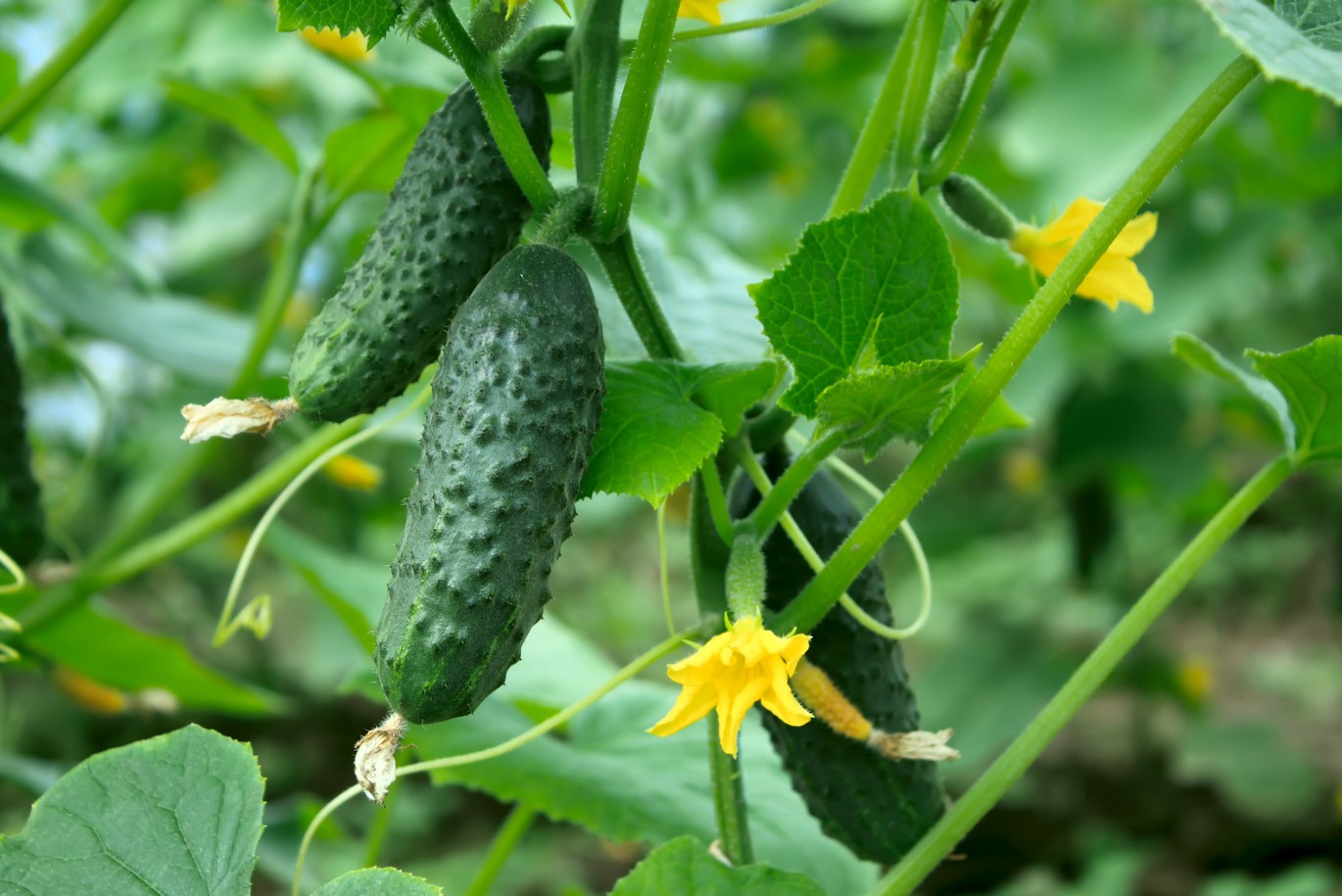
Cucumber’s Role Against Cancer
Cucumbers have long been considered one of the healthiest foods you can eat. This is due to their impressive nutritional profile, which includes powerful antioxidants, vitamins, and minerals. But did you know that cucumbers may also play a role in preventing cancer? In this article, we’ll take a closer look at what research has to say about the potential for cucumbers to protect against this deadly disease.
One of the primary ways that cucumbers may help to prevent cancer is through their high content of antioxidants. These compounds are known to neutralize harmful free radicals in the body, which can damage cells and lead to the development of tumors. Additionally, cucumbers contain a group of phytonutrients called cucurbitacins, which have been found to possess anti-cancer properties.
- One study found that cucurbitacins inhibited the growth of pancreatic cancer cells in mice, potentially offering a new therapeutic option for this devastating disease (1).
- Another study found that cucumber extract was able to reduce the size of breast cancer tumors in mice, possibly due to its ability to induce apoptosis (cell death) in cancer cells (2).
While these findings are promising, it is important to note that more research is needed to fully understand the potential benefits of cucumbers for preventing cancer in humans. At this time, there is no definitive proof that cucumbers can cure or prevent cancer. However, including them as part of a healthy, balanced diet is certainly a smart choice for overall health and wellness.
| Health Benefits of Cucumbers | Culinary Uses of Cucumbers |
|---|---|
| 1. High in antioxidants | 1. As a crunchy addition to salads |
| 2. May help to lower blood sugar levels | 2. As a topping for sandwiches |
| 3. Supports hydration and detoxification | 3. As a main ingredient in dips and spreads |
| 4. May improve skin and hair health | 4. As a refreshing addition to beverages |
| 5. May have anti-cancer properties | 5. As a base for chilled soups |
In conclusion, while the evidence is still preliminary, cucumbers may offer some protection against cancer thanks to their high antioxidant and cucurbitacin content. Whether you’re looking to reduce your risk of cancer or simply add some healthy variety to your diet, consider incorporating garden-fresh cucumbers into your meals and snacks.
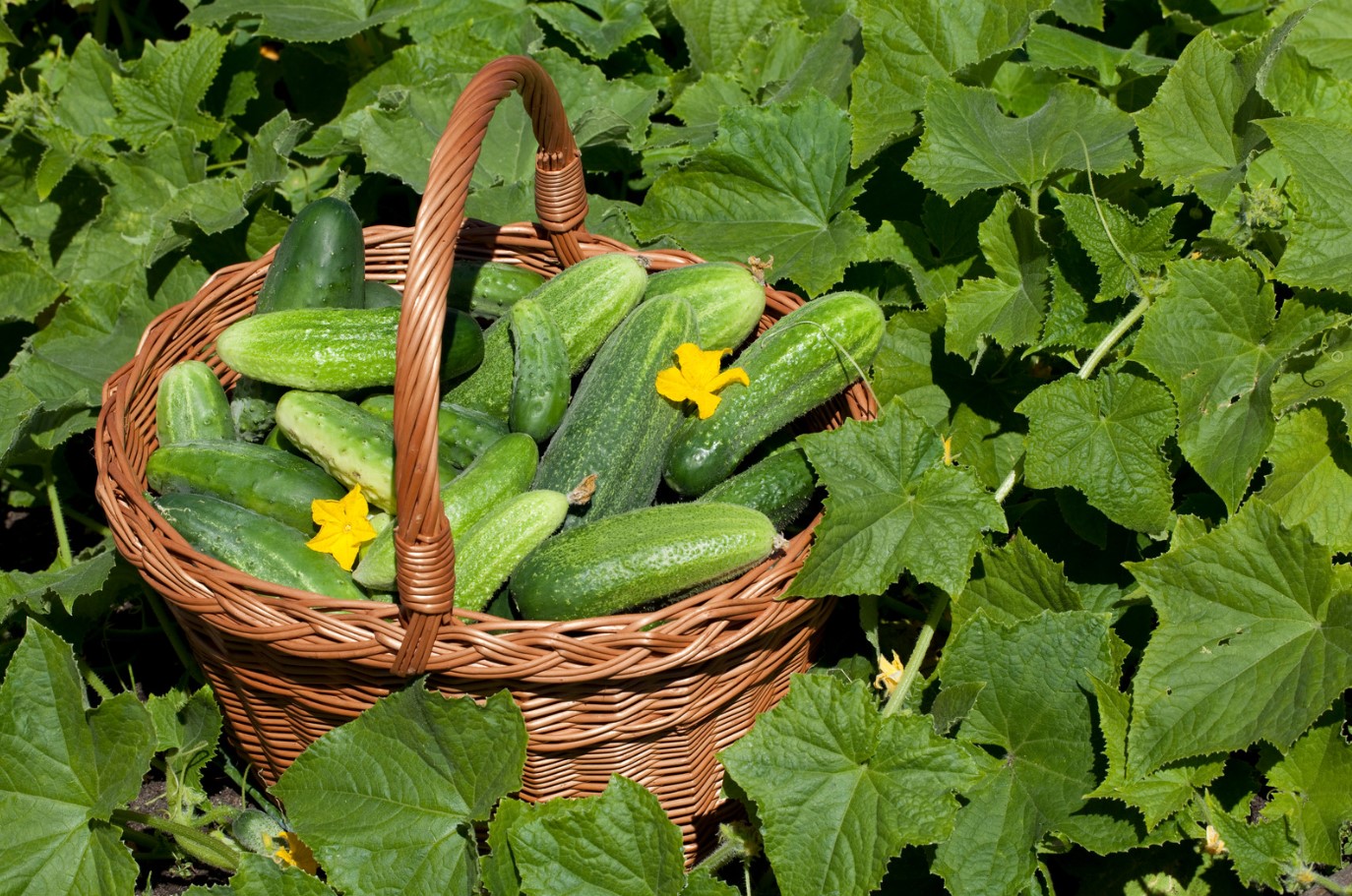
Cucumber For Weight Loss
Cucumber is a vegetable that is rich in nutrients and low in calories, making it an ideal food for those who are trying to lose weight. This green vegetable contains approximately 96% water, which makes it an excellent food for hydration. Moreover, cucumbers contain a variety of vitamins and minerals, such as vitamin C, vitamin K, magnesium, and potassium, that are essential for the human body.
If you are looking for a food that can help you lose weight, then cucumbers should be included in your diet. Cucumbers are low in calories, and you can eat them without worrying about consuming too many calories. In fact, half a cucumber contains just 8 calories, which means you can eat cucumbers as much as you want without gaining weight.
- Cucumbers are rich in fiber, which helps you feel fuller for longer
- You can use cucumbers as a replacement for high-calorie foods such as chips and crackers
- Cucumbers can be used as a base for salads, which are a healthy and filling meal
- Drinking cucumber water can help flush out toxins from your body and aid in weight loss
In addition to helping you lose weight, cucumbers are also beneficial for your health in other ways. As mentioned earlier, cucumbers are rich in vitamins and minerals that are necessary for the human body. Moreover, they are a good source of antioxidants, which can help prevent chronic diseases such as cancer and heart disease.
| Nutrient | Amount per serving (1/2 cup, sliced) |
|---|---|
| Calories | 8 |
| Carbohydrates | 1.9 g |
| Fiber | 0.3 g |
| Protein | 0.3 g |
| Vitamin C | 2.8 mg |
| Vitamin K | 8.5 mcg |
| Potassium | 76.8 mg |
In conclusion, including cucumbers in your diet can help you lose weight and improve your overall health. This refreshing and low-calorie vegetable is easy to incorporate into your meals and can be enjoyed in a variety of ways. So the next time you are looking for a healthy snack, reach for a cucumber and enjoy its many benefits!
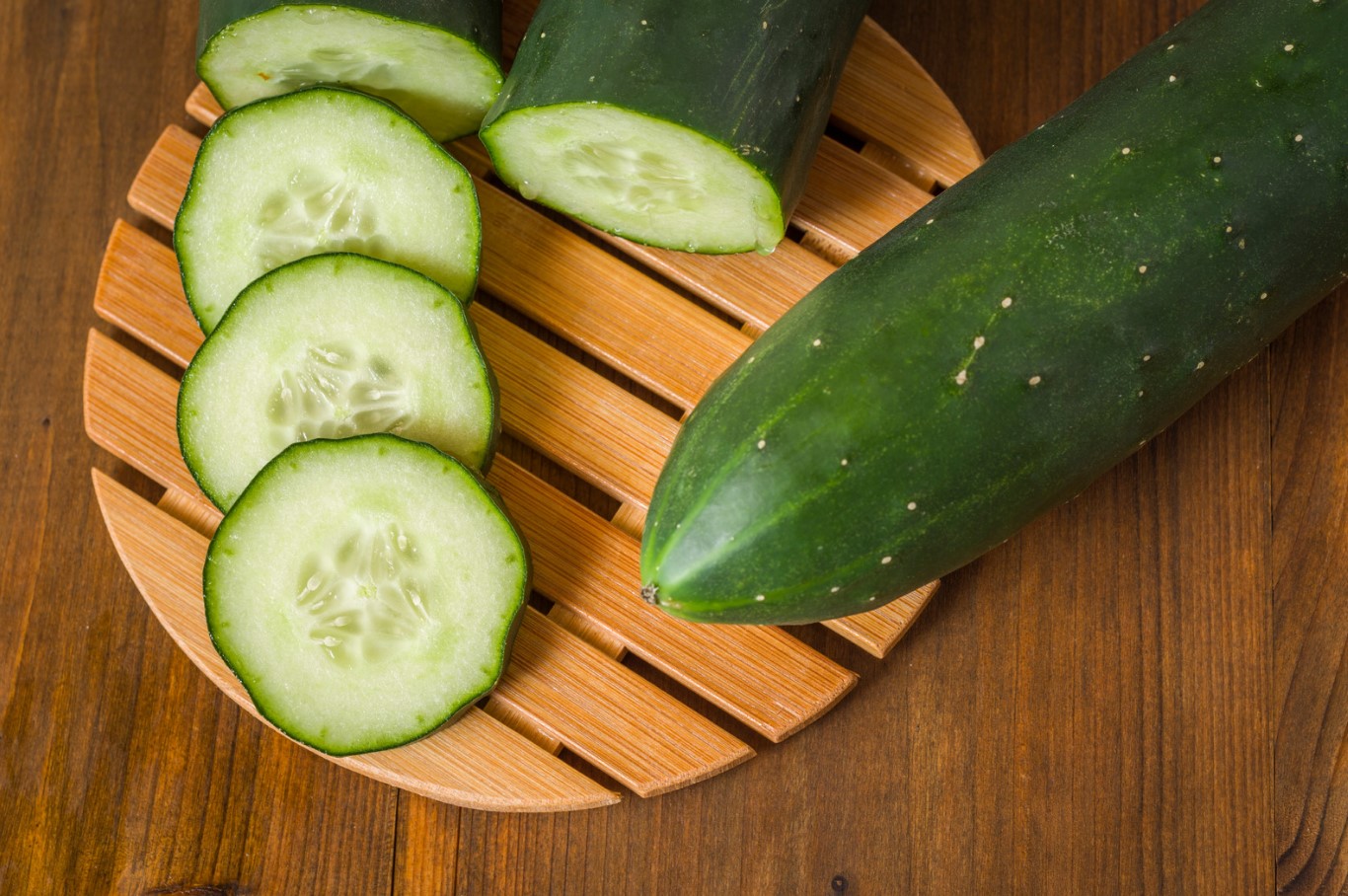
Cucumber’s Effect On Skin And Hair
Cucumbers, a member of the gourd family, are ubiquitous in kitchens and salads worldwide. They are famous for their refreshing crunch and bright flavor. But did you know that cucumbers also pack a punch when it comes to skincare and hair health? Let’s dive into the Cucumber’s Effect On Skin And Hair.
First and foremost, cucumbers have a high water content, which makes them an excellent hydrating agent for the skin. They act as natural moisturizers and can help soothe dry and irritated skin. When applied topically, cucumbers can also help reduce swelling and inflammation, which can be especially beneficial for puffy under-eye bags.
- Cucumbers are also rich in antioxidants that fight free radicals and can help delay the signs of aging.
- They contain Vitamin C, silica and caffeic acid that help reduce fine lines, wrinkles, and prevent sagging skin.
- Cucumber juice can be used as a toner that will tighten and firm the skin, giving it a fresh and youthful appearance.
Moving on to hair- the silica content in cucumbers is excellent for hair growth and maintenance. Silica is a trace mineral that is essential for healthy hair, skin and nails. It helps strengthen the hair shaft, prevents hair fall and promotes hair growth.
| Mineral Name | Quantity per 100g |
|---|---|
| Silica | 5 mg |
| Vitamin C | 2.8 mg |
Cucumbers can also help soothe an itchy scalp and control dandruff. They have natural cleansing properties; the water content and enzymes in cucumbers help clean the scalp of impurities and product build-up.
All in all, cucumbers have some significant beauty benefits for both skin and hair. They are a cheap and effortless way to enhance and maintain natural beauty. Adding cucumbers to your routine can be as simple as slicing them and placing them on your skin or hair, or incorporating them into your daily diet.
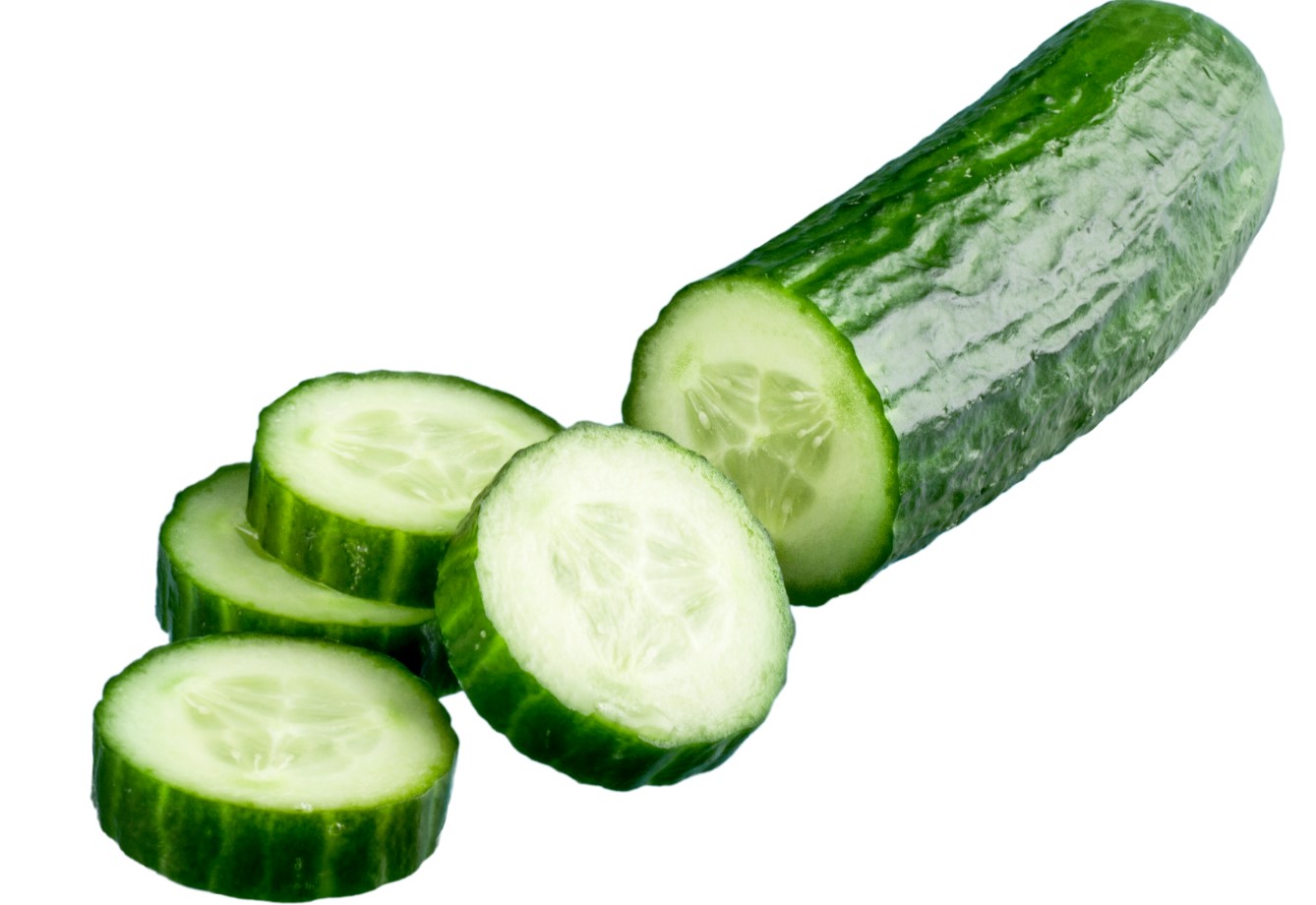
Cucumber For Hydration And Detoxing
Cucumber is a green vegetable that is widely known for its hydrating properties. Made up mostly of water, this vegetable makes for a perfect snack and is an ideal addition to salads. Not only does it help in quenching thirst, but it also helps in detoxing the body. Cucumbers are rich in vitamins and minerals and are low in calories, which makes them an excellent choice to avoid dehydration, especially during the summer months.
The high water content in cucumbers makes them an ideal vegetable to help with hydration. Consuming cucumber on a regular basis can help with regulating body temperature and preventing dehydration. It is also why cucumbers are a popular ingredient in many detox water recipes. Adding cucumbers to regular drinking water can enhance its properties and make it a potent drink that can help with flushing out toxins from the body.
- Additionally, cucumbers contain antioxidants that help to get rid of damaging free radicals inside the body that contribute to cancer and other chronic diseases. It also helps flush the digestive system of toxins, thanks to its high fiber content, which helps keep bowel movements regular and healthy.
- Cucumbers are a rich source of various vitamins such as Vitamin C, K, and A, which play a crucial role in supporting the body’s immune system against illnesses like cold and flu.
Due to its high water content, cucumbers also help keep the skin hydrated, promoting healthy skin. It can also help reduce puffiness under the eyes and help with reducing dark circles, contributing to healthy skin. Many cosmetic products contain cucumber extracts due to its hydrating and soothing properties.
If you are someone who is watching their weight, cucumbers are a great low-calorie food option to consider. Adding cucumbers to your diet can help you manage your weight since they contain fewer calories than other snack options, such as chips or candy. Additionally, cucumbers are also rich in fiber, making us feel full for more extended periods, and ultimately help with avoiding overeating.
| Benefits of Cucumbers for Hydration and Detoxing |
|---|
| Keeps the body hydrated |
| Helps flush toxins out of the body |
| Contains antioxidants |
| Rich in vitamins K, C, and A |
| Supports the immune system |
| Promotes healthy skin |
| Low in calories – great option for weight management |
Cucumbers are versatile vegetables that can be consumed in various forms, from salads to sandwiches to juices. Its hydrating and detoxing properties make it a vital addition to a healthy diet. Cucumbers not only make for a great snack to quench thirst but also help protect the body against illnesses and promote healthy skin.
Cucumber’s Role İn Managing Blood Pressure
Cucumber is not just a refreshing vegetable to snack on, but it is also known for its health benefits. One of its benefits includes its role in managing blood pressure. Individuals who suffer from high blood pressure can benefit from incorporating cucumbers into their diet.
The reason for this is that cucumbers are a great source of potassium. Potassium is a mineral that helps regulate blood pressure. It works by counterbalancing the harmful effects of sodium in the diet. Consuming foods that are high in potassium, like cucumbers, can help lower blood pressure and reduce the risk of heart disease.
- Cucumbers can be consumed in many ways, either raw or pickled.
- It can be added to salads or sandwiches, or used as a garnish for soups and drinks.
- They are also low in calories and high in water content, making them a great choice for those who are trying to maintain a healthy weight.
According to studies, consumers who regularly consume cucumbers have a lower risk of developing high blood pressure, which is often caused by poor diet and unhealthy lifestyle choices. If an individual is already suffering from high blood pressure, incorporating cucumbers into their diet can help manage the condition and possibly reduce their medication intake.
| 100 grams of Cucumber contains: | % Daily Value |
|---|---|
| Water | 95% |
| Calories | 16 kcal |
| Protein | 0.65 g |
| Fat | 0.11 g |
| Carbohydrates | 3.63 g |
| Potassium | 147 mg |
Consuming cucumbers can also contribute to overall hydration and detoxification of the body. Its high water content can help flush out toxins and waste products from the body, promoting a healthier overall well-being.
In conclusion, cucumbers are not only a tasty and refreshing snack, but they also have numerous health benefits. Their role in managing blood pressure is just one of them. By adding cucumbers to our diet, we are taking a step towards a healthier lifestyle.
Culinary Uses Of Cucumber
Cucumber is a versatile vegetable which can be used in countless ways in the kitchen. Its crisp texture and mild flavor make it a favorite ingredient in salads and sandwiches, but it is also a great addition to drinks and even desserts. Here are some of the popular culinary uses of cucumber:
- Salads: Cucumber is a classic ingredient in salads. It can be sliced or diced and added to virtually any type of salad, from classic Greek salad to tuna salad. Cucumber’s crunchiness and refreshing taste make it a great complement to other salad ingredients.
- Cocktails: Cucumber-infused drinks are all the rage these days. You can muddle cucumber slices in a shaker with gin or vodka, or infuse cucumber water with your favorite cocktail ingredients. The result is a light and refreshing drink that’s perfect for a summer day.
- Pickles: Cucumbers are the star of the pickle world. Pickling cucumbers with vinegar, salt, and spices results in tangy and crunchy pickles that are perfect as a snack or a condiment.
- Sandwiches: Cucumber slices are a popular sandwich topping. They add crunch and freshness to any sandwich, from a classic BLT to a fancy turkey and avocado panini.
Cucumber is also great in soups, as a topping for pizza or bruschetta, and even in desserts such as cucumber sorbet. The possibilities are endless when it comes to using cucumber in the kitchen.
| Recipe | Ingredients | Instructions |
|---|---|---|
| Cucumber salad | Cucumber, red onion, feta cheese, olive oil, red wine vinegar, salt, pepper |
|
| Cucumber martini | Gin, cucumber, lime juice, simple syrup, ice |
|
When it comes to cooking with cucumber, there are a few things to keep in mind. First, be sure to choose fresh cucumbers that are firm and free of bruises or blemishes. Second, be aware that cucumbers contain a lot of water, which can dilute other flavors in a dish. To avoid this, you can salt sliced cucumbers and let them drain for a few minutes before using them in a recipe.
Varieties Of Cucumbers
Cucumber is a kind of vegetable that is widely used in cooking and is known for its light, fresh taste. It is a very popular salad ingredient because of its water and fiber content, which makes it refreshing and filling at the same time. But do you know that there are actually different varieties of cucumbers available in the market? These varieties can differ in size, color, texture, and taste, and each has its own unique use in cooking and culinary culture. Here are some of the most common types of cucumbers:
- English Cucumbers – also known as seedless or burpless cucumbers, these are long and slender in shape with thin skin and very few seeds. They have a mild flavor and are perfect for salads, sandwiches, and pickling.
- Pickling Cucumbers – as the name suggests, these cucumbers are used for making pickles because they have dense flesh and a higher seed content than other types. They come in different sizes, from small gherkin cucumbers to larger cucumber varieties.
- Lemon Cucumbers – these cucumbers are yellow in color and resemble a lemon in shape and size. They have a slightly sweeter taste than regular cucumbers and are great for slicing into salads, adding to drinks or smoothies, and even making ice cream.
- Asian Cucumbers – also known as Japanese or Kirby cucumbers, these are shorter and crunchier than English cucumbers. They have a bumpy skin and are usually sold wrapped in plastic to maintain their freshness. These cucumbers are often used in Asian cuisine, from stir-fries to dipping sauces.
These are just some of the most common types of cucumbers, but there are also other varieties like Armenian, Persian, and Mexican cucumbers that have their own unique qualities. It is always best to choose the right cucumber for your intended recipe to achieve the best taste and texture.
| Type of Cucumber | Shape and Size | Texture and Flavor | Uses |
|---|---|---|---|
| English/Seedless Cucumber | Long and slender | Thin skin, few seeds, mild flavor | Salads, sandwiches, and pickling |
| Pickling Cucumber | Small to large, varying shapes | Dense flesh, higher seed content | Pickling |
| Lemon Cucumber | Round and yellow | Slightly sweeter taste | Salads, drinks, smoothies, and ice cream |
| Asian/Japanese Cucumber | Short and crunchy | Bumpy skin, mild flavor | Asian cuisine, dipping sauces |
It is interesting to learn about the different varieties of cucumbers and how they are used in many cultures around the world. Choosing the right cucumber for your recipe can make a big difference in the final taste and texture of your dish. So, next time you go to the market, try exploring the different types of cucumbers and experiment with new recipes!
Cucumber’s History And Origin
Cucumbers have been a part of human nutrition for thousands of years. The history of cucumber cultivation dates back to ancient civilizations, such as the Egyptians, Romans, and Greeks, who regarded this fruit as a symbol of health, beauty, and vitality.
According to historical records, cucumbers were first cultivated in India over 3,000 years ago, and were later introduced to other parts of Asia, Europe, and America by trade and exploration. Cucumbers were initially grown for their medicinal properties and were believed to help treat various ailments, including bad breath, skin irritations, and digestive disorders.
- It is believed that cucumber cultivation first started in India over 3,000 years ago.
- Cucumbers were introduced to other parts of Asia, Europe, and America by trade and exploration.
- Cucumbers were initially grown for their medicinal properties and were believed to help treat various ailments, including bad breath, skin irritations, and digestive disorders.
The cultivation of cucumbers spread throughout the Middle East and Europe during the 17th century, and the variety of cucumber species expanded as they were grown in different climates and soil conditions. By the 19th century, cucumbers were widely grown in the United States and became an important crop for the country.
- The cultivation of cucumbers spread throughout the Middle East and Europe during the 17th century.
- The variety of cucumber species expanded as they were grown in different climates and soil conditions.
- By the 19th century, cucumbers were widely grown in the United States and became an important crop for the country.
Today, cucumbers are grown all over the world and are a popular fruit due to their nutritional value and culinary versatility. They are packed with essential vitamins and minerals, such as vitamin K, vitamin C, potassium, and magnesium, which help to keep the body healthy and functioning properly.
| Vitamin/Mineral | Amount per 100g |
|---|---|
| Vitamin K | 16.4 mcg |
| Vitamin C | 3.2 mg |
| Potassium | 147 mg |
| Magnesium | 13 mg |
In summary, the history and origin of cucumbers is a fascinating tale that dates back thousands of years. From their medicinal properties to their nutritional value and culinary versatility, cucumbers have played an important role in human nutrition and health for generations. Today, cucumbers continue to be a key ingredient in a wide range of dishes around the world, and their popularity shows no signs of slowing down.
Surprising Facts About Cucumbers
Cucumbers are water-filled vegetables that have often been popularly served as a side dish in various parts of the world. However, there’s definitely a lot more to know about cucumbers than just their amazing crunch! Here are some surprising facts about cucumbers that might have you viewing this green vegetable in a brand new way.
- Did you know that cucumbers are technically a fruit, not a vegetable? Yes, it’s true! A fruit is classified as a plant that has seeds and develops from a flower, and cucumbers fit this description perfectly.
- If you’ve ever mentioned cucumbers to someone who is afraid of bitter or sour tastes, they may tell you that they don’t enjoy them because they’re “too bitter.” However, this is a common misconception, since cucumbers actually contain very low amounts of the compound that causes bitterness (which is known as cucurbitacin).
- Have you ever heard of a “burpless” cucumber? These types of cucumbers, which were developed in the 1960s, are known for having less of the compound that causes indigestion and burping (called cucurbitacin) than other varieties, making them much more palatable for some people.
As mentioned, cucumbers contain lots of water – in fact, they’re made up of over 95% water! This makes them an excellent hydrating food, especially during hot weather or after exercise.
- Cucumbers are also a great source of vitamin K, which is important for blood clotting and bone health.
- Additionally, cucumbers contain antioxidants such as beta-carotene, which can help protect cells from damage caused by free radicals.
- Finally, cucumbers have even been used in popular culture and literature, such as in Lewis Carroll’s Alice’s Adventures in Wonderland, where the character of the Queen of Hearts famously orders the beheading of anyone who upsets her – even a cucumber!
| Surprising Facts About Cucumbers |
|---|
| Cucumbers are actually fruits, not vegetables. |
| They contain very low amounts of the compound that causes bitterness. |
| Burpless cucumbers were developed in the 1960s. |
| Cucumbers are over 95% water and an excellent hydrating food. |
| They’re a good source of vitamin K and antioxidants. |
| Cucumbers have been mentioned in popular culture and literature. |
With all of these surprising facts about cucumbers, it’s no wonder that they’ve been enjoyed for thousands of years by people all over the world.
Risks And Side Effects Of Cucumber Consumption
While there is no denying the fact that cucumber consumption has several health benefits, it is important to also acknowledge the potential risks and side effects that come with it. In this post, we will take a closer look at some of the possible dangers of consuming cucumbers.
Allergic Reactions: Cucumber contains a compound called cucurbitacin, which can cause allergic reactions in some individuals. Symptoms of cucumber allergy include swelling, itching, hives, and difficulty breathing. If you experience any of these symptoms after consuming cucumbers, seek medical attention immediately.
Excess Consumption: While cucumbers are low in calories and high in fiber, excess consumption can cause digestive issues such as bloating, gas, and diarrhea. It is important to consume cucumbers in moderation, and to avoid eating too many at once.
- Pesticide Residues: Cucumbers are among the most heavily sprayed crops, and therefore have a high risk of containing pesticide residues. It is important to buy organic cucumbers or to wash them thoroughly before consuming them.
- Interference with Drug Absorption: Cucumbers contain compounds that can interfere with the absorption of certain medications such as aspirin and blood thinners. If you are taking any medication, consult with your doctor before adding cucumbers to your diet.
| Side Effects | Precautions |
|---|---|
| Allergic Reactions | Seek medical attention immediately |
| Excess Consumption | Consume in moderation |
| Pesticide Residues | Buy organic or wash thoroughly |
| Interference with Drug Absorption | Consult with a doctor first |
While cucumber consumption is generally safe for most people, it is important to be aware of the potential risks and side effects. By consuming cucumbers in moderation and taking necessary precautions, you can enjoy the numerous health benefits that cucumbers have to offer.
Cucumber İn Popular Culture And Literature
Cucumber, the cool and refreshing vegetable, has been an important part of various cultures for centuries. Its versatility and unique taste have made it a popular choice in various cuisines. But did you know that cucumbers have also made their way into popular culture and literature?
Cucumbers have been mentioned in various literary works throughout history. In William Shakespeare’s play “Richard III,” the character Duchess of York says, “I would I were a trooping fairytale, To wand’r wither I list, the world’s my way, And every comer helps to make a fray.” Later in the play, the character Brackenbury states, “That Edward’s children, are false impostors, And that poor simple Richard, was betrayed, And murdered by the guilt of Edward’s wife, and Clarence.”[1] Though there is no direct mention of cucumbers in these lines, it is believed that their inclusion was for comedic effect.
- https://www.nosweatshakespeare.com/quotes/plays/richard-iii/
Cucumber has also played a noteworthy role in pop culture. In the 1966 hit song “Summer in the City” by The Lovin’ Spoonful, the lyrics include the line “Cool cucumber, from down the vine.”[2] In the popular TV series “Seinfeld,” cucumbers were often referenced or used as a prop. In one episode, the character Elaine is outraged because of her ex-boyfriend’s “anti-dentite” view, which leads her to accuse him of being “pro-cucumber.”[3]
- https://www.songfacts.com/lyrics/the-lovin-spoonful/summer-in-the-city
- https://www.imdb.com/title/tt0697795/
Cucumbers have been a source of inspiration for various artists as well. In the painting “Still Life with Cucumbers” by Vincent van Gogh, the bright colors and unique shapes of the cucumbers are on full display.[4] In the 1994 film “Forrest Gump,” the main character speaks the iconic line, “Me and Jenny goes together like peas and carrots,” but in the original book, the phrase was “Me and Jenny goes together like cucumbers and vinegar.”[5]
- https://www.vangoghgallery.com/catalog/Still-Life-Vase-with-Twelve-Sunflowers.html
- https://www.buzzfeed.com/daves4/33-little-known-facts-about-forrest-gump-that-wi-vkru
The influence of cucumbers on popular culture and literature proves how deeply ingrained they are in our lives. From being a source of humor to being a subject of art, cucumbers have made their mark. They continue to be an important part of our diet and have a rich history that adds to their charm.
| Source | Content |
|---|---|
| 1. https://www.nosweatshakespeare.com/quotes/plays/richard-iii/ | William Shakespeare’s play “Richard III.” |
| 2. https://www.songfacts.com/lyrics/the-lovin-spoonful/summer-in-the-city | The 1966 hit song “Summer in the City” by The Lovin’ Spoonful. |
| 3. https://www.imdb.com/title/tt0697795/ | The TV series “Seinfeld.” |
| 4. https://www.vangoghgallery.com/catalog/Still-Life-Vase-with-Twelve-Sunflowers.html | The painting “Still Life with Cucumbers” by Vincent van Gogh. |
| 5. https://www.buzzfeed.com/daves4/33-little-known-facts-about-forrest-gump-that-wi-vkru | The 1994 film “Forrest Gump.” |
Conclusion And Summary On Cucumber’s Importance
Cucumbers are a versatile and healthy vegetable that can be used in a variety of ways. They are low in calories and high in water content, making them a great choice for hydration and weight loss. Additionally, they contain important vitamins and minerals that can contribute to overall health and wellness.
Research has also shown that cucumbers may have anti-cancer properties and can help with managing blood pressure. Furthermore, their high silica and sulfur content make them beneficial for hair and skin health.
- So, what can we conclude about the importance of cucumbers?
- Firstly, they are a nutritious and hydrating vegetable that can aid in weight loss and overall health.
- Secondly, they may have anti-cancer and blood pressure-lowering properties.
- Thirdly, their benefits extend to hair and skin health due to their high silica and sulfur content.
- Lastly, they are incredibly versatile and can be used in a variety of culinary ways.
Overall, cucumbers should be considered an important part of a healthy and balanced diet. Their numerous health benefits and versatility make them a great choice for anyone looking to improve their overall well-being. Whether eaten raw, sliced in salads, or used in dips and spreads, cucumbers are a vegetable that should not be overlooked.